- Home
- Sharyn McCrumb
The Unquiet Grave Page 4
The Unquiet Grave Read online
Page 4
I began to wish that I’d brought, if not Jacob himself, then at least his shotgun. I drew myself up. “Well, sir, I had hoped that you’d be man enough to accept your responsibility in this matter. I expected you to be a gentleman by instinct if not by breeding.”
He shrugged. “If you’re talking about marriage, Miz Heaster, I don’t reckon that would solve anybody’s problem. I don’t have two nickels to rub together, much less the wherewithal to be supporting a wife and baby. And I’m not persuaded that Zona would want such a union any more than I do. She was awful cold toward me, last time I seen her. ’Course I said some things in the heat of the moment that were not altogether kind.”
“I heard.”
“Well, like I said, I am uncommonly sorry that this has happened, but I don’t know what I can do about it, ma’am. I don’t think you’d want to see a grandchild of yours raised in poverty without a fixed home.”
I wouldn’t, but that didn’t mean I was going to let him off the hook so easily. “Do you have any kinfolks that might be willing to take the baby? Your mother and father, for instance?”
He shook his head. “None. They both passed a few years back. I have an older sister that got married and moved to Ohio. Or maybe it was Indiana. I ain’t heard from her in a couple of years. We weren’t what you’d call close.”
We had reached the barnyard by then, and I had run out of questions for George Woldridge. I could see as plain as day that he was like a stud Angus bull—good for making babies, and not for any other earthly thing. He hadn’t the wit or the drive to make anything of himself beyond what he already was—a hired hand on a backwoods farm. For all I knew he might be a drinker or a gambler in the bargain, for there was certainly no evidence of self-discipline about him. And as a husband for Zona, he could prove worse than no husband at all. A woman can suffer mightily at the hands of a man who does not love her, and even if he did love her, what future was there in being tied to a laborer, trailing after him from farm to farm until her youth was worn away by childbearing and hardship? And what kind of life would it be for a child of such a couple, raised poor in a loveless home? Maybe marriage wasn’t the right answer, after all.
I was thinking all this in a practical frame of mind, not worrying anymore about what the neighbors would think. I loved my Zona and wanted the best for her in this world, even if she had been foolish and wild. Zona was beautiful; she might not keep her bloom for very much longer, but as she looked now, she could certainly do better than poor, hapless George Woldridge. At least, she could do better than him if she didn’t have the encumbrance of a child.
I set my mind to considering that problem as I walked home that evening. There could be no question of doing away with the baby. I knew that there were women in every settlement who could give an expectant mother a potion of bitter herbs in whiskey that would cause her to slip the child. They say that pennyroyal will end a pregnancy if it is taken in the proper dosage. But we were God-fearing people, and I would not have that sin on Zona’s head or on mine. If the Lord willed my daughter to miscarry, I would not grieve for it overmuch, but if He did not, then the child must live and a home be found for it.
But not with us.
Zona had not expressed any longing for the baby. She seemed to think of it as other folk might think of a fever blister: a painful annoyance to be got rid of and then forgotten. That, as much as anything, told me that she had no love for George Woldridge. Perhaps she might change her mind when she was further along or after the child was born, but I thought that Zona wanted her youth and freedom more than she wanted a baby. She never took an interest in her much younger brothers, never wanted to treat them like baby dolls or play games with them. When I was her age, I had a husband and babies already, and I never thought of wishing them away for any other kind of life, but we were edging up to a new century now, and perhaps times had changed. I don’t say the change was for the better, but I could see that young people weren’t the same as back in my day.
I didn’t see any point in talking any more about it to Jacob. He’d as lief pretend that the whole thing had never happened, but even so, it wasn’t my decision to make alone. Zona had to be consulted, for it was her business more than mine, and she was no child herself anymore. After an indifferent supper that night, cooked by Zona, who isn’t much use in the kitchen, we settled the rest of the family down for the night, and the two of us sat up by the fire, talking until it burned low.
“I went to that farm with the intention of badgering George Woldridge into marrying you,” I told her, “but now that I have seen him, I’m having second thoughts about it.”
Zona sniffed. “I should think you are.” She was brushing her long strawberry blond hair until it shone in the firelight like a tongue of flame. “George is about as useless as teats on a mule.”
“There’s no call to be coarse, Zona. It behooves you more than ever now to act like a lady.”
She made a face at me. “Well, if I married up with old George, nobody would care what I said ever again. I’d rather die than spend the rest of my life with old ham-handed, slow-coach George.”
“Then it would be no kindness to him or the child to push for such a union. That leaves us to decide what we ought to do instead.”
Zona yawned and stretched. Then she began to braid her hair for the night. “Anything but raise it as George Woldridge Jr., I reckon. I don’t much care.”
“I see that. Perhaps you ought to give some thought as to what is best for your child.”
“Farm it out, then, I reckon. Like folks do if they can’t bear to drown a litter of pups. They find them a home.”
“And I suppose you’re expecting me to do that?”
“Well, Mama, I sure don’t know anybody in want of a young’un. My friends are mostly looking to get married and have children of their own, or else they’re happy just as they are. I wouldn’t have any idea how to find a home for it.”
“No. I didn’t suppose you would, Zona. I just wanted to make sure that it was all right with you if I went ahead and took care of the matter myself.”
“I hoped you would, Mama. You don’t even have to tell me what you did with it. When the time comes, just do what needs to be done.”
A few weeks later, I told the family that I was going back to visit our kin and neighbors back up Sewell Mountain way, and I took the buckboard and journeyed alone. I knew folks up there well enough to know which women could keep a secret and which ones could not. I laid out the problem to the three ladies whose kin I knew, those I trusted most not to gossip about our trouble, and with their help, it only took a little more than a day to find a childless older couple who were glad of the chance to raise a child. It was all arranged, and the bargain sealed with a handshake and promises on both sides.
On November 29, 1895, Zona gave birth to the baby back at our farm with Dr. Lualzo Rupert attending, and me helping as much as I could. We all called him Dr. Lualzo because his father, old Dr. Cyrus Rupert, had sired fifteen children, and four of them became doctors. The rest went elsewhere to practice, but Dr. Lualzo married a daughter of the Reverend Sam Black, and he had taken over the doctoring for the Sewell Mountain communities when his father passed away some five years back, at the venerable age of eighty-three. Because the law required it, Dr. Lualzo registered the birth at the courthouse in Lewisburg, but none of our neighbors was likely to find out about that. Ten days later, when the weather turned mild for a spell and the child was fit enough for travel, I wrapped it in its quilt, and put it into a white oak basket. Just at sunup I hitched up the buckboard again, to take it up the mountain. Jacob and Zona were both awake and stirring in the kitchen as I made ready to leave, but neither of them came out to see the baby or to say good-bye.
We never saw or heard tell of that baby again.
four
LAKIN, WEST VIRGINIA
1930
THE SUNNY PARLOR on the ground floor of the hospital had been furnished with small oak tables, ladder-
back chairs, and an old mahogany sideboard holding a battered silver-plated tea urn and a mismatched assortment of china cups and saucers. This was the patients’ tea room, a quiet place for the least disturbed of the inmates to gather in the afternoons to pass the time and practice normal conversation again in anticipation of their eventual release. For an hour two or three times a week, they pretended to be normal, or at least proved that, like many people out in the world, they could hide the fact that they weren’t.
Some of those who attended the tea were not yet able to assume a veneer of normalcy, but the staff hoped that they might gain some benefit from the attempt, or at least from watching their fellow patients. These lost souls sat away from the others, weeping softly or muttering to themselves, and some simply stared at a patch of bare wall oblivious to the company around them. But enough of the others made an effort to emulate polite conversation to make the exercise worthwhile, and so the doctors encouraged the more promising—or prosperous—patients to attend.
James P. D. Gardner, erstwhile attorney-at-law, sat alone at one of the little tables, as oblivious to those around him as a man waiting for a train. He was not delusional, simply uninterested. He could force himself to socialize for business purposes, but among his fellow sufferers he saw no value in making the effort.
Once or twice he lifted his teacup, thought better of it, and set it down again. He was wearing the green cotton uniform of an inmate, but his posture and demeanor clothed him in an illusory suit and tie, which anywhere but here would be his second skin. Even after all this time, he would occasionally reach a hand up to his throat to adjust the cravat that wasn’t there.
He glanced at the end tables on either side of the Victorian sofa—both were bare, in need of dusting. Why didn’t they provide newspapers or magazines in the parlor, so that he would have an excuse to ignore the other patients? He had never been adept at small talk even among like-minded colleagues, and experience with the people here had taught him that an ordinary, if strained, conversation could suddenly go off the rails when the other person began to babble about Jesus or started to pick imaginary insects off themselves. He shuddered. Really what could one say to them? Even among the tolerably functional inmates, there were so many who could not even read or write that he was at a loss to find any common ground at all with them. Some had never traveled more than five miles in their lives until they were hauled away to be shut up in this brick fortress with their demons. Should he attempt to explain the finer points of property law to a sharecropper?
There was one interesting patient here, but she didn’t seem inclined to be sociable, either. She was a fine-boned woman in her early twenties, he thought, with coppery brown hair and the lightish skin that goes with it. Back home, people called someone of her coloring a redbone, light enough to pass for white if you weren’t particularly observant. Her eyes were magnified by wire-rimmed spectacles, and she said little, but occasionally as she read she glowed, lit from within by a tremulous smile. She was always serene and solitary, sitting in the patients’ parlor with a large leather-bound book in her lap. He had taken a peek at it once, when she had set it down to go to the lavatory, and discovered that it was The Complete Works of William Shakespeare. He only knew her name because it was written on the flyleaf of the book: Kathleen Davies. She had a private room on the first-floor hall of the asylum, one of those assigned to well-to-do patients, or those considered well enough to be discharged in the foreseeable future. Each first-floor room had a narrow metal-frame bed, a braided rag rug, a wood dresser and mirror, and a window that looked out on the front lawn of the asylum. First-floor patients were allowed to wear ordinary clothes, and, provided they behaved rationally, they were not subjected to the harsh treatments that more deranged patients endured: icy baths and immobilizing restraints.
Gardner coveted one of those first-floor rooms. He thought he might spend a little more time observing Miss Davies, and then he might try to engage her in conversation to see how she managed to get assigned there. He wondered if she was an educated woman, and if there was some underlying defect lurking beneath her calm exterior. Because she was quite pretty and apparently sane, he was loath to let go of his illusions of her by making her acquaintance and discovering that she was as mad as the others.
Well, after all, what sort of society could he expect here? The Lakin State Hospital for the Colored Insane—lumped together by race as well as by mental defect. He supposed that if the deranged were segregated by education and rank instead of by skin color, he might have found some congenial souls in their number to pass the time with. He had associated with white men in the practice of law, even defended some, and conversing with them in the way of business had never posed any particular problem for him. As long as they confined themselves to discussing professional matters, they spoke a common language. He was as clever as they, and just as formally educated as most of them, because few of his colleagues had attended law school. Most aspiring lawyers simply apprenticed under a practicing attorney and then sat for the bar exam. In his profession he was their equal. Their respect for him might have been grudging, but it was respect all the same.
Well, there was a sign of madness, he told himself, scowling at his folly: thinking even for a private fleeting moment that color would be no obstacle among gentlemen. But there had been a time . . . forty years ago, before the century turned, and when he was still shy of forty himself. Back then it hadn’t seemed to matter quite so much about color and pedigree. People didn’t make such a great distinction between the races, somehow. There wasn’t yet a colored part of town, even. It was a small enough place for folks to know one another, and that helped. He’d had a few white clients and some white neighbors, and everyone just got on with the business of living. There were unwritten rules, of course. You knew your place, and you didn’t overstep your bounds, but if you behaved according to expectations, most people were decent. It was generally the lower-class whites you had to watch out for—those who were afraid of you because the accident of their white skin was the only thing that allowed them to think they outranked anybody. They were afraid of losing that advantage. He supposed that rich white people already felt so superior to everybody else that they scarcely noticed the difference between their inferiors, regardless of color. Some were kind and others not, but they were that way regardless. He had worked hard, and never gave anybody cause to complain about him. Never really trusted anybody, either, but better lonely and safe than careless and ruined.
Gardner had even thought that race might matter less and less after 1900, as the world progressed. Had it been a precursor of his madness back then to believe that? Would he have been any madder if he had conversed with hallucinated angels?
The odd thing was that while the world did progress—producing airplanes, telephones, an annihilating modern war, and ever faster and more elaborate automobiles—the racial divide seemed to grow wider with each passing year. Ordinary white people suddenly developed their own form of madness, although it was so universal that it passed for normality: they became unaccountably afraid of their dark-skinned neighbors. New laws were passed and old ones more stringently enforced, and there were groups of hooded men who frightened people into obeying strictures without the sanction of the law at all. It seemed to happen quickly—although perhaps he had simply been preoccupied elsewhere. In the early days of the new twentieth century, he’d had a new wife and a great many clients to tend to concerning matters of law that scarcely ever changed: deeds, wills, and mortgages. His clients were mostly of his own race, but it really didn’t matter to a will or a mortgage whether you were black, white, or purple—the legal forms never varied. And while he’d had his head down, toiling over the fine print, the world had turned into a harsher place, one he hardly knew at all.
And now, here he was, despite all his intelligence and prosperity, betrayed by the shadows in his mind and banished to the colored madhouse, as if the patients’ common race made for homogeneity. As if, camouflaged
by brown covering, his culture and education had become invisible, so that he and the sharecroppers were indistinguishable.
The one possible blessing here at the asylum at Lakin was that the physicians and staff members were also of the African race. From one month to the next, you could almost forget that white people even existed, for you never saw one. Perhaps that segregation was best for everyone in these days of ever stricter and stranger laws of racial separation. Even a gentleman lawyer, provided he was a man of color, might be neglected or treated brutally if he were placed in a facility with white patients, one that was staffed by white attendants who might resent his achievements. In such a place he might be the least and last in everything, considered inferior even to the lowliest toothless old madwoman, provided she was white, but here he could count himself a prince.
He was sitting at a table with a clear view of the double windows overlooking the front lawn. The asylum was built on the crest of a hill—or what passed for one in this flat western end of the state—but he could only see as far as the other side of the road. Here on the ground floor of the building, the trees blocked the rest of the view entirely, so that even the riverside fields beyond the trees and the bare cliffs on the Ohio side of the river were hidden from him.
Out of the corner of his eye, he saw a teacup set down opposite him, and he stiffened, ready to retreat, until he saw who had put it there. He nodded cordially to the white-coated young man who had just sat down. “Good afternoon. It’s Dr. Boozer, is it not? My neighbor and my jailer.”
“Just your neighbor, I hope, sir.” The physician nodded and smiled. “Well remembered.” Perhaps he had intended the remark to pass as merely a social pleasantry, but the difference in their positions here tinged his words with the hint of a clinical examination: Patient is able to recall recent events and remembers people he has previously encountered. Gardner found himself unaccountably annoyed at being evaluated, even as mildly as this.

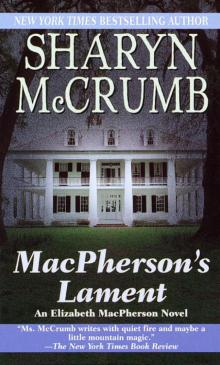 Elizabeth MacPherson 07 - MacPherson’s Lament
Elizabeth MacPherson 07 - MacPherson’s Lament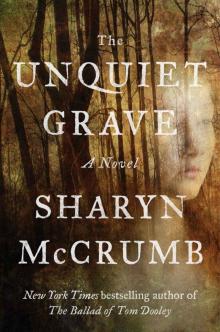 The Unquiet Grave: A Novel
The Unquiet Grave: A Novel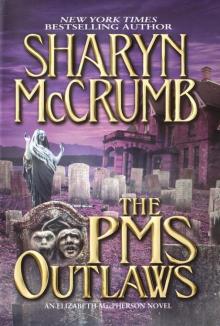 The PMS Outlaws: An Elizabeth MacPherson Novel
The PMS Outlaws: An Elizabeth MacPherson Novel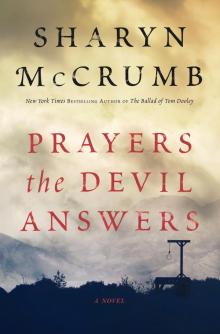 Prayers the Devil Answers
Prayers the Devil Answers Paying the Piper
Paying the Piper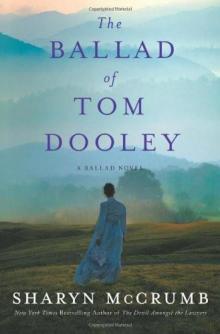 The Ballad of Tom Dooley: A Ballad Novel
The Ballad of Tom Dooley: A Ballad Novel Highland Laddie Gone
Highland Laddie Gone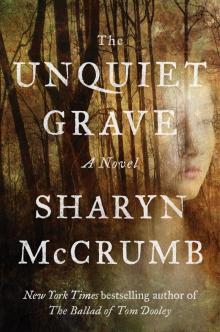 The Unquiet Grave
The Unquiet Grave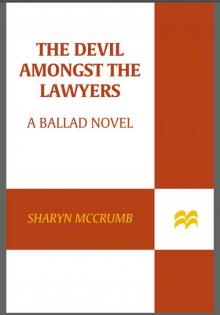 The Devil Amongst the Lawyers
The Devil Amongst the Lawyers The Windsor Knot
The Windsor Knot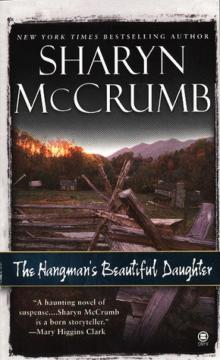 The Hangman's Beautiful Daughter
The Hangman's Beautiful Daughter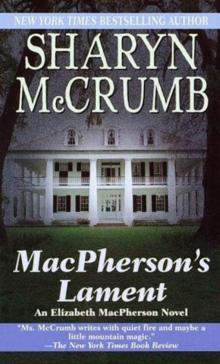 MacPherson's Lament
MacPherson's Lament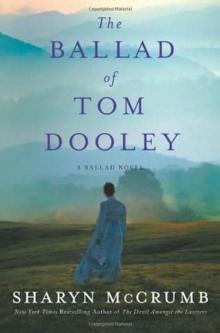 The Ballad of Tom Dooley
The Ballad of Tom Dooley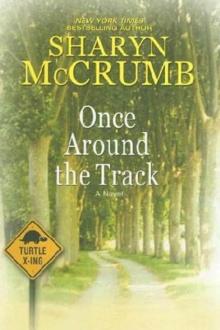 Once Around the Track
Once Around the Track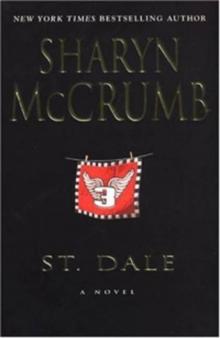 St. Dale
St. Dale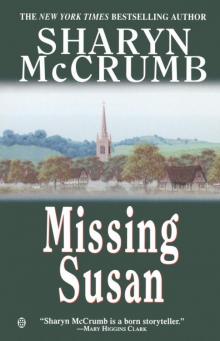 Elizabeth MacPherson 06 - Missing Susan
Elizabeth MacPherson 06 - Missing Susan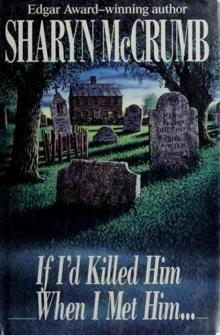 If I'd Killed Him When I Met Him…
If I'd Killed Him When I Met Him…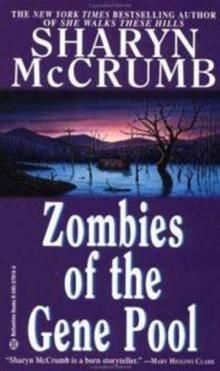 Zombies of the Gene Pool
Zombies of the Gene Pool Bimbos of the Death Sun
Bimbos of the Death Sun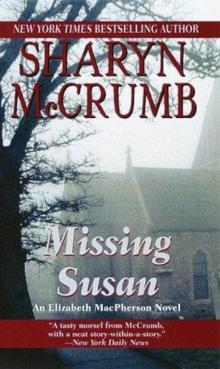 Missing Susan
Missing Susan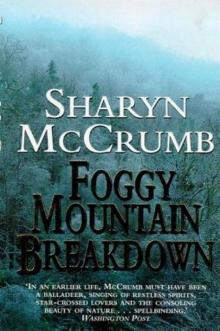 Foggy Mountain Breakdown and Other Stories
Foggy Mountain Breakdown and Other Stories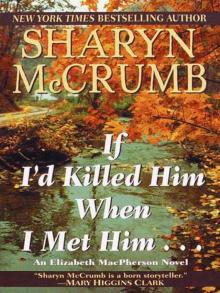 If I'd Killed Him When I Met Him
If I'd Killed Him When I Met Him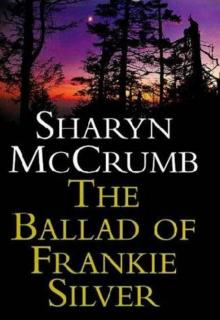 The Ballad of Frankie Silver
The Ballad of Frankie Silver Lovely In Her Bones
Lovely In Her Bones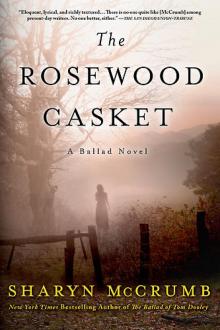 The Rosewood Casket
The Rosewood Casket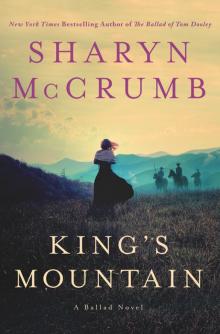 King's Mountain
King's Mountain